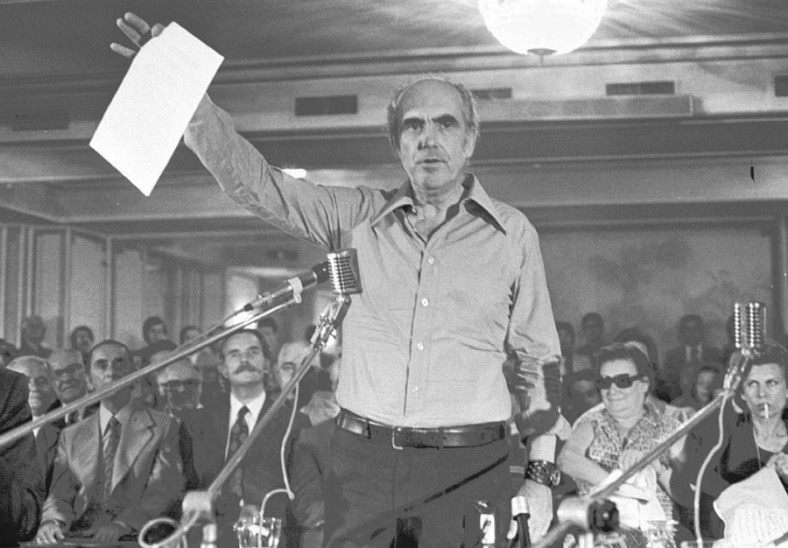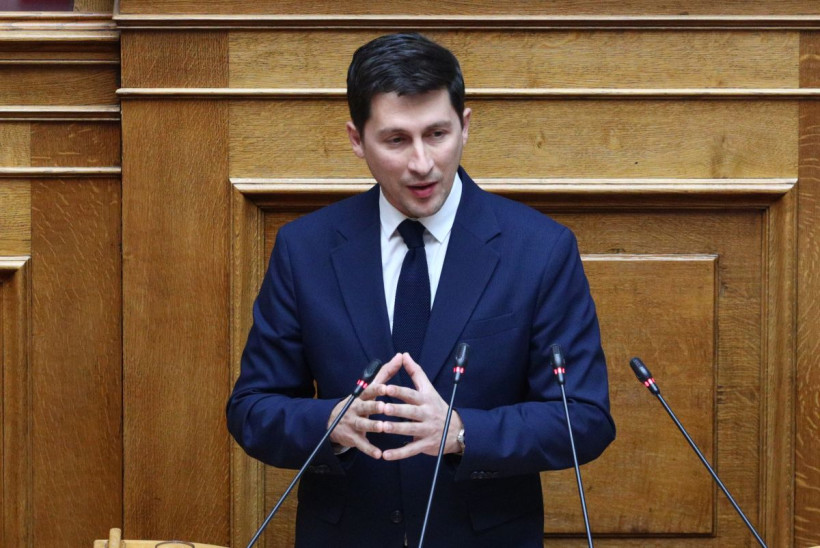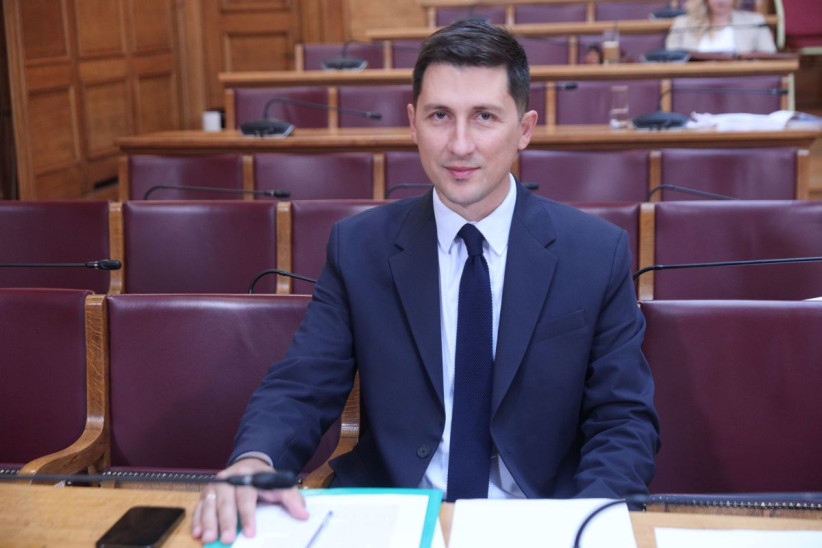Interview with Stefanos Nikolaidis
Is representative of a new generation of politicians that grew up in the Transition and today is called upon to evaluateto defend but also to exceeds.
THE Pavlos Christidis, his PASOK and one of them younger parliamentarians of today’s Housespeaks to skai.gr In the context of the tribute ‘Transition 50+1 years after»For them large milestones and Lost opportunities of this periodfor the young people’s relationship with democracyfor the collective memory that is in danger of being worn out – and for the need for political renewal with substance and roots. With clear conversations and the sincerity of his generation, he calls for a new political realism without loss of values.
In detail, Mr. Christidis’ interview:
– What does ‘post -region’ mean to you personally?
I was born after ’81 and lived the post -review in its results.
For me, the Transition is not just a historical chapter. This is the moment when Greece has gained a voice. It is the starting point of a collective “finally” when a society that lived silent decades spoke and demanded.
Andreas Papandreou transformed this demand into a political plan, giving voice to those who were on the sidelines until then to the non -privileged Greeks. It was the birth of a more demanding and inclusive democracy, where social mobility became a practice.
But we don’t stop there. What they taught in the early years of the Transition is that democracy is something that is built every day. That is why this era is a starting point, not an excuse.
– What do you consider the most important institutional or social breakthrough of the period?
The recognition of popular sovereignty as an act and not just as a slogan. This began with PASOK’s first four -year policies, the restoration of injustices, the welfare state, the integration of women and young people into the political scene.
And continued in the following decades with institutional modernization. Decentralization with the powerful self -government, ASEP, Transparency, which embodied the principle of transparency and meritocracy.
In essence, it was the transition from the statism of the voice to the rule of law of the act.
And this is a question for today. Can we talk about democracy if there is no trust in institutions?
– Do you think we have gone through a “post-metaphorical” era? If so, when and why?
Yes, and we understood it when the old recipes stopped working. When young people stopped voting out of habit or family tradition. When the 2010 crisis struck the delusions and left the structures naked. It was the shock that revealed how fragile the social balance was.
But post-transition is not just “after the old”. It is the time of dispute without an ideological compass. The time of information chaos, political fatigue, insecurity, work burnout and social fatigue and alienation.
And here we need a new generation of political thought, which combines vision with the institutional tool, just as Atsemoglu and Robinson suggest. Vision without institutions is wishful thinking. Institutions without vision is technocracy. We want both.
– In your opinion is the greatest risk for democracy today?
The greatest risk is apathy disguised in irony. “Nothing changes”. “Everyone is the same”. This resignation culture is the real threat.
As Obama said, democracy dies when we stop defending it. And you defend her with a vote, with participation, with questions, with disagreement. Along with Likes, Shares and Stories.
If citizens turn into simple observers, then the game is won by those who do not want to have rules.
– If you were talking to a 17 -year -old voter today, what would you tell him that he was worth defending?
I would tell him to defend the right to the dream. Defend values, feelings and ideals. To think of his neighbor, to care about the fellow man.
I would tell him to defend education, as a tool of freedom, the institutions, because without them freedom is for the few.
And, above all, to defend hope. Not the naive, but the persistent. Hope that does not expect saviors, but becomes the same tool of change.
History is not something you just read. It’s something you write. And your vote is the first chapter.
Source: Skai
I have worked in the news industry for over 10 years. I have been an author at News Bulletin 247 for the past 2 years. I mostly cover politics news. I am a highly experienced and respected journalist. I have won numerous awards for my work.












